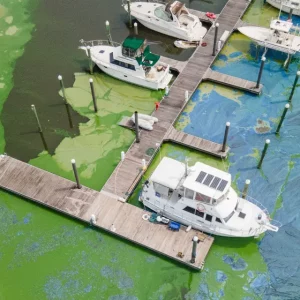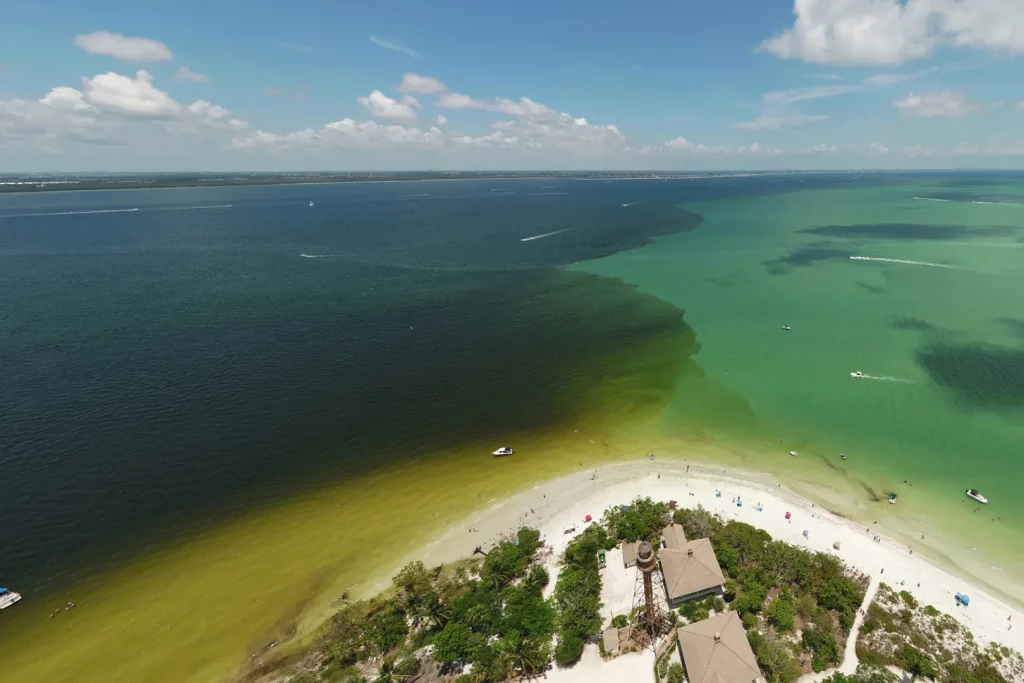Economic impact revealed

Blue-Green algae bloom at the Pahokee Marina on Lake Okeechobee. Courtesy, Captains for Clean Water
Florida has a recurring algae bloom problem. In 2005, 2018, and perhaps now again in 2024, high levels of nitrates and phosphates in the water from various sources of runoff cause excessive blooms and, in turn, damage to economies and ecosystems in Southwest Florida. According to a new report from a group of Sunshine State non-profits working with Greene Economics, if high volumes of algal blooms – specifically from blue-green algae – like those from 2005 or 2018 occurred today, damage across a three-county region would be catastrophic, perhaps totaling damages in the tens of billions of dollars.
People along the coast carry much of the burden, with 17.5% of the population of Collier, Charlotte, and Lee counties being employed in a marine-related sector, and 11.4% of the GDP of those counties reportedly coming from these affected industries. If the current blooms continue to flare up, these counties could see a 29%-35% decrease in tourism, costing them around $459.7 million each year, and likely impacting the 43,000 jobs in related industries. They would also see drops in commercial fishing and property values – losing $5.2 million in local economic output, and a whopping $17.8 billion in property value. Such an algae bloom would be devastating to locals to say the least.

Brown discharge water from Lake Okeechobee flows past the Sanibel Island Lighthouse into the Gulf of Mexico, June 2018. Courtesy, Captains for Clean Water
The Florida Legislature has responded over the past several years with money for mitigation of algal blooms. Just last week, Governor DeSantis announced awards of nearly $10 million in grants to develop algae-fighting technology, and $30 million for infrastructure improvements in the Caloosahatchee River and Estuary – including six projects in Southwest Florida where blue-green algal blooms have been particularly troublesome in recent years.
The Florida Legislature, in its current session, is considering bills that would help keep the public informed on the health of their waterways and increase resilience and readiness for future disasters. The Safe Waterways Act includes testing for bacteria in waterways and beaches, then relaying this info to Floridians online. Another bill would further assess the health of wastewater treatment plants to prioritize facility upgrades statewide. Other bills aim to streamline building permitting to help with hurricane resilience, proposing that future permits be valid indefinitely, and seasonal fertilizer bans might be halted under further legislation. You can read more on these bills in the Tampa Bay Times.
LMA Newsletter of 1-22-24

